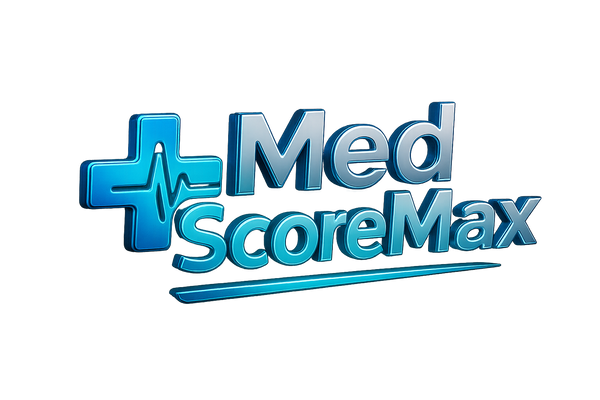
Ultimate Guide — Internal Medicine Shelf Exam: High-Yield Topics + Complete Study Plan (2025)
Share
Internal Medicine Shelf Exam — High‑Yield Topics & 4‑Week Study Plan
NBME Blueprint — Where to Focus
The NBME Internal Medicine subject exam organizes content by systems and clinical scenarios. High-yield focus areas include cardiology, pulmonology, and gastrointestinal disease; routinely practice ECG/CXR interpretation and acid‑base problems.
- Cardiovascular — 10–15%
- Respiratory — 10–15%
- Gastrointestinal & Hepatic — 10–15%
Priority Topic List — System by System
Cardiology (Highest priority)
- ACS: STEMI vs NSTEMI — initial management and reperfusion choices.
- Heart failure: HFrEF guideline meds and acute decompensation steps.
- Arrhythmias: Afib — rate vs rhythm, anticoagulation basics (CHA₂DS₂‑VASc).
Respiratory
- Pneumonia empiric therapy, COPD/asthma exacerbation management, PE diagnosis (Wells/PERC) and acute approach.
GI & Hepatology
- UGIB triage, LFT patterns, pancreatitis management.
Renal & Electrolytes
- AKI categories, hyperkalemia immediate steps, acid‑base interpretation checklist.
4‑Week High‑Intensity Study Plan (Daily Checklist)
Week 1 — Cardio + Pulm
- Days 1–4: Cardiology (ECG practice, ACS, HF, arrhythmias) — 40–60 Qs/day.
- Days 5–7: Pulmonology + CXR practice.
Week 2 — GI, Renal, ID
- GI/hepatic focus, renal acid/base drills, infectious disease bundles.
Week 3 — Endocrine, Heme/Onc, Neuro
- Endocrine emergencies, anemia workup, stroke rules.
Week 4 — Consolidation & Full-Length Practice
- Mixed timed blocks + 1–2 full NBME‑style practice forms. Deep error review after each form.
Daily routine: 2–3 hrs content + 2–4 hrs question practice; re‑review explanations and log errors.
Question Bank & Exam Simulation Strategy
- Primary Qbanks: UWorld or AMBOSS — pick one as primary; the other for mixed practice.
- Spaced repetition: re‑do missed blocks after 3–5 days.
- Simulate NBME: take full timed forms under strict conditions to calibrate pace.
How to Use Real‑Form Practice (2025–2026)
Use authentic full‑length forms only in final stage to measure endurance and timing. Treat mistakes as learning opportunities — create one corrective action per missed item.
Top Resources & Quick Links
Frequently Asked Questions
Most tested topics?
Cardiology, pulmonology, and GI — with heavy emphasis on acute management and interpretation.
Which Qbank?
UWorld or AMBOSS. Use one as primary and the other for targeted review if available.
Conclusion & Next Steps
Prioritize cardiology, pulmonology, and GI. Use question banks heavily and simulate the NBME with full timed forms late in prep.
Reply "Export HTML" to get a downloadable HTML file, or "Convert to Liquid" to receive Shopify Liquid-ready template.
